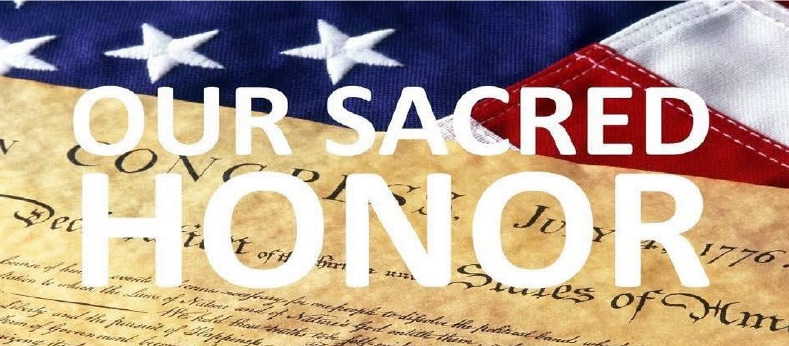
On June 11, 1776, the Continental Congress met in the Pennsylvania State House in Philadelphia, now known as Independence Hall. Thomas Jefferson of Virginia, John Adams of Massachusetts, Benjamin Franklin of Pennsylvania, Roger Sherman of Connecticut and Robert R. Livingston of New York were chosen to draft a declaration of independence.
Thomas Jefferson finished a draft of the document in seventeen days, and the Congress adopted it on July 4. Fifty-six men placed their names on the document. Fifty-six men knew – when they signed – that they were risking everything.
They knew if they won this fight, the best they could expect would be years of hardship in a struggling nation. If they lost, they’d face a hangman’s rope. But they signed the pledge.
Of the fifty-six, few were long to survive. Five were captured by the British and tortured before they died. Twelve had the homes . . . from Rhode Island to Charleston . . . sacked, looted and occupied by the enemy, or burned. Two lost their sons in the army. One had two sons captured. Nine of the fifty-six died in the war from hardships or from more merciful bullets.
They were not poor men or wild-eyed pirates. They were men of means. They were prosperous men. Wealthy landowners, secure in their prosperity. But they considered liberty so much more important than security that they pledged their lives, their fortunes and their sacred honor.
The Declaration of Independence, July 4, 1776: “For the support of this Declaration, with a firm reliance on the protection of Divine Providence, we mutually pledge to each other our Lives, our Fortunes and our sacred Honor.
Excerpted from “Our Lives, Our Fortunes, Our Sacred Honor”
by Paul Harvey
